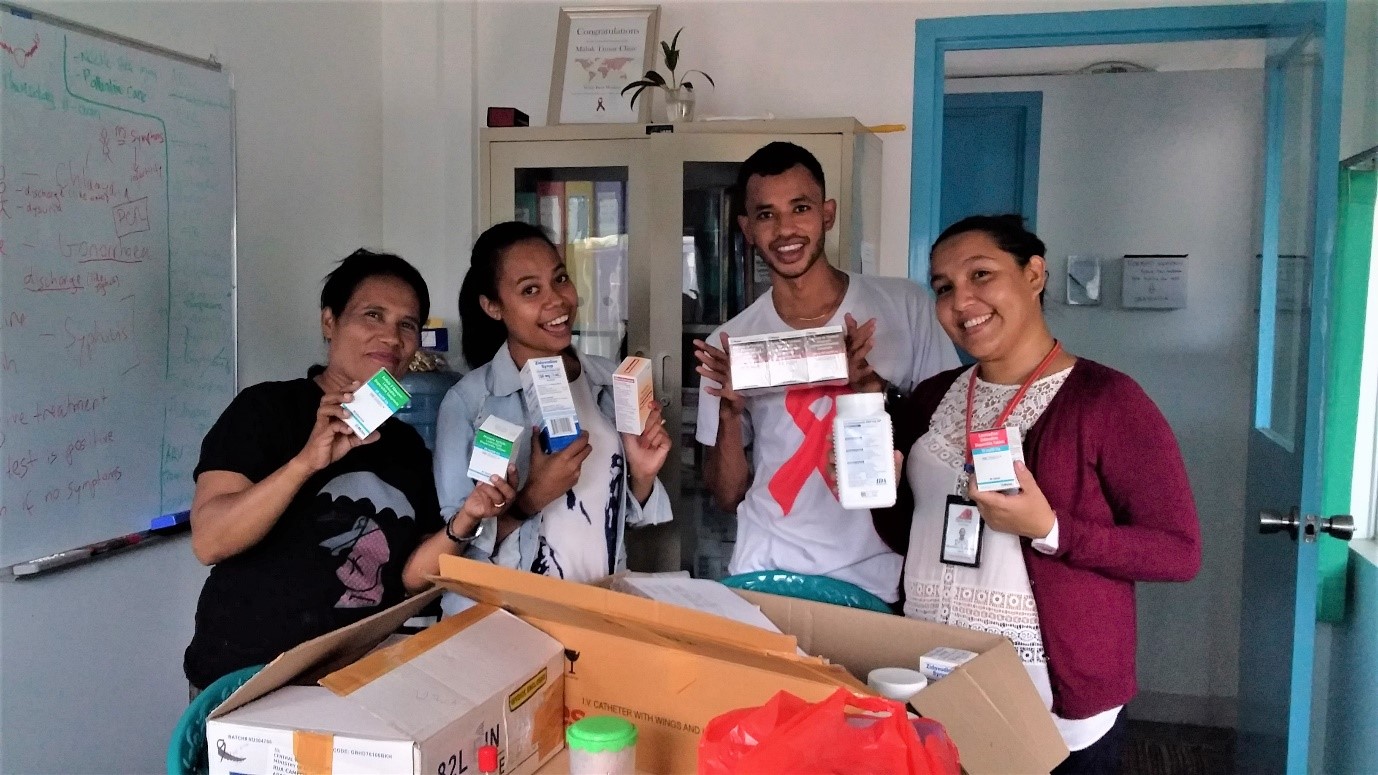Ano waves a smiling young man out of the door. “Pasiente numeru 97, doutora!” he tells me, with a big grin.
Here in our HIV clinic in Dili, Ano is our chief counsellor and phlebotomist combined. He is jubilant, since this patient was diagnosed with HIV some years previously, but had become ‘lost to follow up’. Now, Ano has managed to cajole him into enrolling at our clinic and re-starting on treatment.
The team are continuing an ongoing debate about the best location for the big party we are planning when we reach one hundred patients. The lead contender currently seems to be a picnic and swimming at the beach behind the Jesus statue (appropriately named Jesus’s Backside Beach). I’m a little ambivalent, given that someone was eaten by a crocodile there not long ago, but the team briskly dismiss my spineless objection as trifling and carry on with the party plans.
You might be wondering whether the reality of one hundred people with a life-threatening infection would really be cause to celebrate. But from our perspective, each patient we enrol at the clinic represents a transition from lost to found. In sharp contrast to all those in Timor Leste who do not yet know they have HIV, these 97 patients now have the support of a trained and caring team, and the prospect of a healthy life on effective treatment.
There is another reason to celebrate – our clinic is now one year old! With no small degree of pride, I have witnessed a transformation within our team. Previously somewhat shy, our nurse Madalena delivered a recent training session by herself, fiery and confident in front of a roomful of doctors. Dircia is ferocious in her ongoing battles to secure the drugs and other supplies our patients need. Many of the crowd waiting outside the general outpatient’s have been enchanted by mana Nina’s smile into visiting our clinic and having an HIV test.
And this week I watched as Dra Odilia began coaching the first of our Family Medicine trainee doctors about paediatric HIV treatment. It is a delight for me to see this information being passed on, since only in this way can the work we do here have a sustainable impact. This trainee is one of 24 doctors newly enrolled in the Family Medicine training program. Each will spend three weeks with us, learning the principles of HIV care – principles they will carry with them when they return to their own clinics at the end of the program, all around Timor Leste.
My team is thriving, and for a few moments I can just enjoy feeling proud of how tremendous they are. The challenges are ever-present though, with one example being the issue Odilia is currently explaining to our young doctor. We have just seen a 4-year old HIV positive patient of ours, and Odilia has recognised a bit of a problem.
Her mother is confused about the multiple medicines her daughter needs. Lacking paediatric formulations, her anti-viral regimen is cobbled together from adult tablets cut down to size. Already beset with opportunistic infections, she needs several other drugs as well, so her mother’s confusion is not surprising. This strong-willed little girl has been demanding extra doses of one of her medicines (a deliciously orange-flavoured one), but has been under-dosed on some of the others. It occurs to us that her mother probably can’t read the colour-coded chart we made, and so we give the best explanations we can.
We hurry the two of them out the door, aware that the last bus back to their district will leaving soon. The mother is tired, and she has a few reasons to be – she is the only carer for a sick little girl, she is traveling hours on the bus each week to visit the clinic, she is iron-deficient from her poor diet, and she is pregnant. This 4-year old was infected, and two other babies were lost, because the mother missed out on having an HIV test in those earlier pregnancies. Fortunately, her HIV test was performed early in this current pregnancy, and we started treatment quickly, so this baby should remain HIV negative.
It won’t be very long before we are having our 100-patient party, and it’s going to be great (unless one of us is eaten by the crocodile…). But it won’t compare to the party we hope to have one day, when we see rates of new HIV infections in Timor Leste finally start to come down. That day is looking to be a long way off yet, but when dedicated people collaborate, anything is possible. We hope our wonderful donors will continue to partner with us to help make that party a reality.



